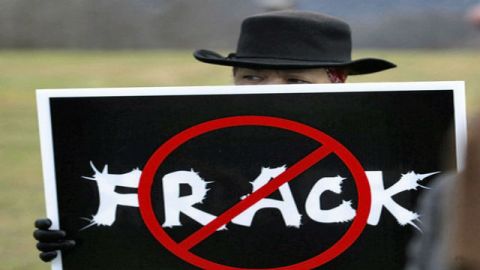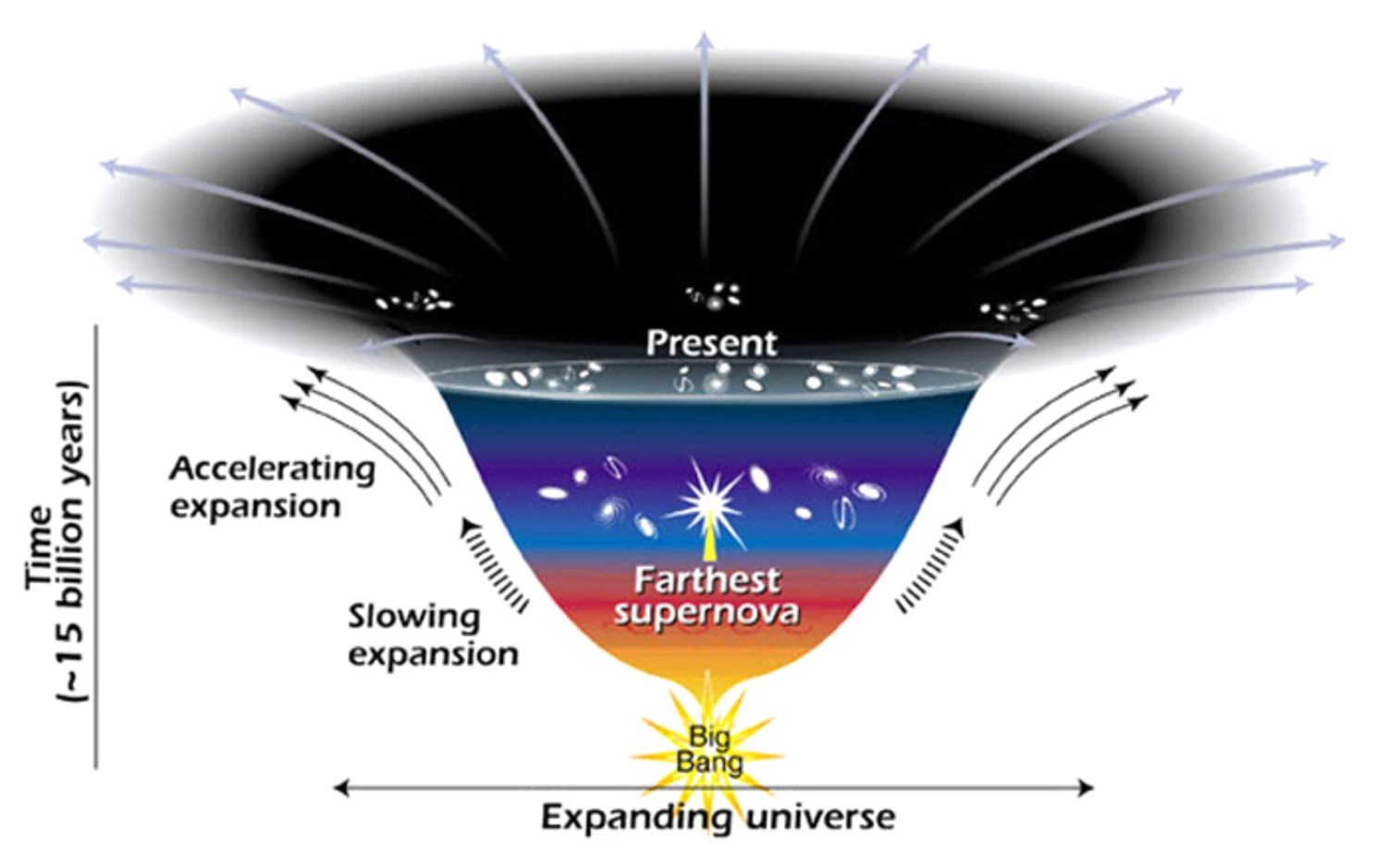The Way We’re Fighting Over Fracking is All Fracked Up

Suppose I told you there was a form of energy so plentiful it could encourage huge economic growth, a source so plentiful here in the United States that it could truly make America energy independent and vastly enhance our global political influence. That would be good news, right?
But suppose I also told you that capturing this energy source means drilling, and smashing the underground rocks with a pressurized mix of water and sand and industrial chemicals, and that the liquid that returns to the surface from this process sometimes contains low doses of toxic chemicals and even radioactivity, and that breaking up all that underground rock could cause earthquakes and let potentially dangerous gasses leak up to the surface, and there would be a lot of air pollution from all the heavy equipment needed to get the drilling going in the first place. And this process will make oil companies even richer. Sounds a little different now, right?
Welcome to the fracking debate, which is producing a lot of natural gas, and a growing amount of hot air about whether fracking is a good thing or a bad thing, opinions that have less to do with the facts than with how those facts are framed, and what frame of mind people are in as they form those opinions. Fracking is yet another example of the subjective, instinctive, affective way human cognition deals with risks, and it offers sobering lessons about the limits on our ability to reason about complex modern issues like this.
The first part of the lesson is, the human brain is lazy. Careful conscious thinking is effortful…it takes calories, and the brain evolved to save calories when it could because we were never sure when or IF there would be a next meal. So we have developed a bunch of subconscious mental shortcuts to reduce how much it costs, in calories, to “pay” attention, and one of the biggest of these is something called Framing. It works like this; we hear a few initial facts, and based on how the issue is first presented via those early partial clues, we quickly form our judgment. No heavy lifting, and we have things figured out. Case closed. We rarely seek out more information.
The Framing effect then impairs our ability to be open-minded on the issue going forward. If we do learn more about the issue, additional facts either fit, or fight, our initial judgment and we adopt the facts that fit feel comfortable…because they don’t challenge what we believe. The facts that do challenge our established view require more critical independent consideration and open-mindedness and mental effort, and our lazy brain finds it easier just to reject them and stick with our initial view of things based on how the issue was initially framed.
Most of us had never heard of fracking until Josh Fox’s documentary Gasland came out in 2010. Like any good documentary, it selectively used the facts (emphasizing the ones in the second paragraph above) to make a strong point; Fracking is BAD! New coverage followed, framed by Gasland, emphasizing the dangers of earthquakes and toxics and radiation, etc. As we first heard of fracking, it was initially framed to the public as worrisome, dangerous…BAD.
The natural gas industry quickly countered with an information campaign noting all the good stuff about fracking (see the first paragraph above). But they were responding to how the issue had been initially framed, which meant that from day one they were fighting an uphill battle against the lazy brains of people who had already made up their minds. Given the way our brain works, fracking was in trouble.
But there is an even more powerful element of cognition shaping opinions about fracking and turning it into a simplistic “Good or Bad” fight, a phenomenon called Cultural Cognition. We tend to fall into one of four basic groups about how we would prefer society to operate. Then we choose positions on the issues of the day that match our tribe’s view. Agreeing with the tribe makes us well-accepted members…and produces unity that magnifies our tribe’s dominance in society. Like the lazy brain, this element of cognition probably has evolutionary roots, since as social animals we depend in part on our tribe for our personal safety and survival.
Here are those four tribes, and how Cultural Cognition is playing a big role in the Fracking Wars.
1. Hierarchists – They like society to operate within fixed, predictable hierarchical ladders of social and economic class which are the result, in part, of free market capitalism. Even if they are not members of “The One Percent” at the top, Hierarchists feel safe in a world that has a One Percent and other people at predictable and unchanging levels down the ladder of money and power and influence. If you frame fracking as good for the economy and American power and how it will reinforce the status quo, as Paragraph One does, Hierarchists will be all for it.
2. Egalitarians – They’re the opposite of Hierarchists. Egalitarians want a more flexible world, a fairer world in which everyone has an equal shot at every opportunity. They feel powerless and threatened in a society controlled by The One Percent. Egalitarians are usually environmentalists, because they don’t like a world controlled by the One Percent, and they see environmental damages as the result of what the One Percent and their system and their products are doing to the rest of us. Egalitarians see fracking the way it’s framed in Paragraph Two.
3. Communitarians – They prefer a “We’re All in this Together” society that operates in the name of the greater common good. Naturally, that makes Communitarians environmentalists as well, more susceptible to the framing of Paragraph Two.
4. Individualists – They are the opposite of Communitarians. Individualists prefer a society that leaves the individual alone, a more libertarian world in which we all get to do our own thing, pool our resources only rarely, and work out conflicts amongst ourselves. They are more susceptible to the description of fracking in Paragraph One, simply because those Communitarian ‘we’re all in this together’ environmentalists see it the other way.
If we had the power to objectively and carefully reason that we think we have, we should be able to read both Paragraph One and Two and not be suckered into choosing the one that feels right. We should remain open-minded and objective and make the effort to find out more, and weigh the tradeoffs. If we had as much power to reason as we think we do, issues like fracking wouldn’t so quickly devolve into the naively simplified fight it’s become.
But that fight, and the fracking issue, clearly demonstrate that we don’t have the reasoning powers we like to think we have. Reason is limited by the inherent nature of human cognition and risk perception. That sometimes lead to judgments and perceptions that may feel right but which may not actually do us the most good.
What we really need to do, about fracking or any other complicated issue with so much at stake, is to recognize the cognitive limits on reason, and their causes, and honestly accept that those limits can get us into serious trouble. The foibles of risk perception can put us at real risk. If we can accept those things, then, motivated to do what is best for our own safety and well-being, we can begin to challenge our lazy brains to do the work of open-minded critical thinking that complex issues like this require, and we can start to accept that the best solution to these things may not always fit perfectly with our tribe’s underlying views about how society should operate.





